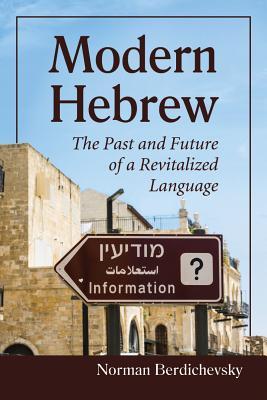Ben-Yehuda's vision of a modern Hebrew eventually came to animate a large part of the Jewish world, and gave new confidence and pride to Jewish youth during the most difficult period of modern history, infusing Zionism with a dynamic cultural content.
This book examines the many changes that occurred in the transition to Modern Hebrew, acquainting new students of the language with its role as a model for other national revivals, and explaining how it overcame many obstacles to become a spoken vernacular. The author deals primarily with the social and political use of the language and does not cover literature. Also discussed are the dilemmas facing the language arising from the fact that Israelis and Jews in the Diaspora "don't speak the same language," while Israeli Arabs and Jews often do.
